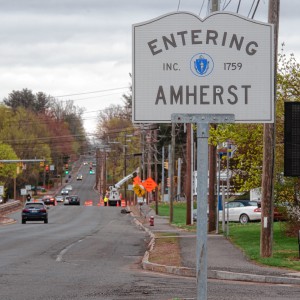Guest columnists Jim and Lisa McGovern: Early detection equals better outcomes
| Published: 02-02-2023 4:29 PM |
You have cancer. Words nobody ever wants to hear — but each year, nearly two million of our fellow Americans hear them. More than 600,000 die annually after battling these diseases, including over 12,000 people in Massachusetts alone.
But it does not have to be this way. Research shows that up to 50% of cancer cases and about 50% of cancer deaths are preventable with the knowledge we have right now.
So as we begin National Cancer Prevention Month, we are urging you and your loved ones to learn the steps you can take to reduce your risk of cancer.
We know how scary a cancer diagnosis can be because it’s impacted our own family many times.
In 1997, a month after Jim was sworn in for his first term, Lisa’s mother was diagnosed with lung cancer and died a short three weeks later. We were devastated.
Then, in 2010, Jim was diagnosed with thyroid cancer, undergoing surgery and radiation, and successfully beating his first bout with cancer.
About a decade later in 2021, at a routine screening with his dermatologist, Jim was diagnosed with basal cell carcinoma — the most common form of skin cancer — just under his left eye. After another surgery and a week in a bandage, he was once again cancer-free.
Too often, when we think of cancer, we think of big, scary symptoms, but both of Jim’s cancers were caught during routine checkups. When cancer is detected early, your odds of survival increase. You may also require less extensive treatment or have more treatment options. We want to leave you with a simple and lifesaving message: Early detection = better outcomes.
Article continues after...
Yesterday's Most Read Articles
 Holyoke man finds bear paw in his yard
Holyoke man finds bear paw in his yard
 Petition to block auto dealership on King Street falters in Northampton
Petition to block auto dealership on King Street falters in Northampton
 First look at how little Amherst’s police alternative being used called troubling
First look at how little Amherst’s police alternative being used called troubling
 Developer lands $400K loan for affordable housing project in Easthampton mill district
Developer lands $400K loan for affordable housing project in Easthampton mill district
 Developer pitches new commercial building on Route 9 in Hadley
Developer pitches new commercial building on Route 9 in Hadley
 Boyfriend accused in slaying of Hampden sheriff’s assistant, former legislator’s top aide
Boyfriend accused in slaying of Hampden sheriff’s assistant, former legislator’s top aide
Routine screenings for breast, cervical, colorectal, lung and prostate cancers can lead to early detection, increasing the likelihood of successful treatment. With cervical and colorectal cancer screenings, you can even prevent cancer by finding and removing precancerous lesions.
That’s why, together, we make a plan for our annual routine screenings and hold each other accountable — and we encourage others to do the same.
We know it can be easy to delay medical appointments and tell ourselves we’ll get it done next year. But one year can quickly become two and skipping a routine cancer screening can lead to a missed or late-stage diagnosis that may be harder to treat.
Please, talk to your health care provider about what screenings are recommended for you and then make, and keep, those appointments.
Vaccines can also prevent certain cancers. The human papillomavirus (HPV) vaccine can protect against the HPV types most likely to cause cancer. It is recommended for young people ages 9-12. Teens and young adults up to age 26 can receive a catch-up series. If the vaccine is given as recommended, it can prevent more than 90% of HPV-related cancers.
And hepatitis B, a leading cause of liver cancer, can also be prevented with a vaccine. The vaccine is usually given at birth with the series completed at six to 18 months. Children up to age 18 and adults at high risk should also get the vaccine if they have not already received it.
Finally, there are important steps all of us should be taking every day to reduce our risk of cancer.
Don’t smoke and protect your skin from the sun using broad-spectrum SPF 30 or higher or a hat even during the winter and on cloudy days. Eat a balanced diet, maintain a healthy weight, exercise regularly and limit your alcohol intake.
We want to leave you with one final thought: The five-year survival rate for many cancers is almost 90% when cancer is found in its early stages.
Thanks to early detection, Jim is still in Congress working hard on behalf of all of his constituents.
And Lisa continues to grow and foster a bipartisan nationwide congressional community committed to raising awareness about cancer prevention and early detection.
We’re so glad we caught cancer early and we hope you take action today to do the same. Your family will thank you for it for years to come.
Jim McGovern represents the Second Congressional District of Massachusetts in the United States Congress. Lisa McGovern is the Executive Director of the Congressional Families Cancer Prevention Program of the Prevent Cancer Foundation. Learn more at http://www.preventcancer.
 Taylor Guss: Northampton's zoning should align with its climate goals
Taylor Guss: Northampton's zoning should align with its climate goals Guest columnist Bill Dwight: How to make sense of Northampton’s school budget dilemma
Guest columnist Bill Dwight: How to make sense of Northampton’s school budget dilemma Columnist Russ Vernon-Jones: Climate solutions tough, but can be done
Columnist Russ Vernon-Jones: Climate solutions tough, but can be done Bridget Miller: Why walkability is the pathway to a healthy Amherst community
Bridget Miller: Why walkability is the pathway to a healthy Amherst community
